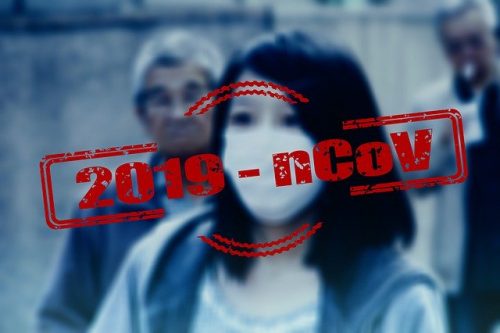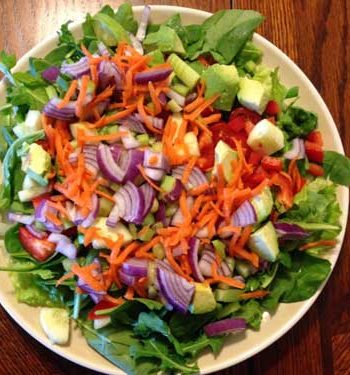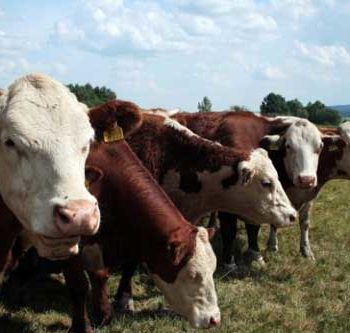This post contains affiliate links, which means I may earn some money if you click on one. Don't worry, there is no additional cost to you. Thank you for supporting my blog.
The new Coronavirus is a hot topic right now, there is a lot of misinformation circulating on the internet. In this article I focus on concerns about this virus, how to prevent it, and how to support your immune system if you do get infected with it.
Coronavirus – What Is It?
Coronaviruses belong to a family of viruses that can cause respiratory illness. They get their name from their membranes, which look like the sun’s corona. (This virus is shaped like a crown).
This coronavirus has been given the official name 2019-nCov ARD, (2019 Novel Coronavirus Acute Respiratory Disease).
Symptoms of a coronavirus are usually mild. However, some cases can develop into a more serious illness such as bronchitis or pneumonia.
Severe Acute Respiratory Syndrome (SARS), was caused by a coronavirus. During the 2003 outbreak, thousands of people got sick, and nearly 800 died.
The Source of This Outbreak
This outbreak started in Wuhan, China. Wuhan is not a small province, it is a city of 11 million people. The Chinese New Year holiday contributed to the spread of this virus. Many people travel during this time, which increased the potential for the virus spreading globally.
Patient zero has not been identified yet.
Coronavirus Concerns
Dr. Ben Lynch recently did a Facebook live video about this coronavirus, 2019-nCov ARD. He discussed an article from the New England Journal of Medicine called A Novel Coronavirus Emerging in China – Key Questions for Impact Assessment. The article itself is not available unless you are a paid subscriber to the journal, so Dr. Ben Lynch summarized the key points for us.
Some key points from Dr. Ben Lynch’s Video
1. This is the third coronavirus to appear in the human population in the past two decades.
2. The coronavirus 2019-nCov ARD appears to be less pathogenic than MERS and SARS.
3. Human to human transmission occurs with this virus.
4. The 2019-nCov ARD mainly affects the upper respiratory tract.
5. For most people the symptoms are mild, which enables the virus to spread faster.
To summarize, the 2019-nCov ARD “seems” to be a low threat to a healthy individual, but it can be harmful to someone with a compromised immune system. (Fatalities have occurred in people with underlying health conditions).
You can watch Dr Ben Lynch’s video here.
Prevention
– Cough into your elbow instead of coughing into your hand
– Wash your hands frequently, with soap and water, for at least 20 seconds . I sing the ABC song with my kids.
– Stay away from large crowds if possible.
– Avoid traveling on airplanes, if possible.
– Do not put your hands above your shoulders. (Keep your hands and fingers away from your eyes, nose, and mouth).
– Avoid close contact with people who are coughing
– Avoid touching bathroom doors with your hands. (Use a paper towel to avoid direct contact with the door handle after you wash your hands).
– Take daily Vitamin D supplements (my kids and I take Cod Liver Oil and Vitamin D drops in winter)
– Take probiotics and eat fermented food (L reuteri seems to be protective against respiratory illness)._
– Take elderberry syrup
– Avoid all sugar, it can suppress the immune system for a few hours.
– Avoid alcohol, it has negative effects on the mitochondria and immune system.
– Keep a positive mindset, a negative mindset weakens the immune system.
Treatment
I am not a doctor, and I am not providing medical advice. Always defer to your doctor if you have health concerns or an illness. The information provided is for educational purposes only.
If you do get sick, the recommended treatment is similar to the way you would treat a cold.
– Get plenty of rest and sleep. At the first sign of illness, go to bed. You have a much better chance of recovering quickly if you go to sleep.
– Fasting is good if you have a fever. (Digestion uses a lot of energy, let your body focus on the immune system. If you are hungry, opt for bone broths.)
– Stay hydrated, (drink water and bone broth).
– Create an artificial fever to activate the immune system. A very hot shower can drive the internal body temperature up.
– Avoid foods that are difficult to digest, such as gluten and dairy.
Natural Remedies
Vitamin C
There is evidence that high doses of vitamin C may relieve the symptoms of virus-induced respiratory infections. Source
Dr. Bronstein, a Board Certified Physician, suggests taking 1,000 mg of Vitamin C per hour if you are ill, to bowel tolerance. (If you get diarrhea stop taking it for a while). As a preventive, he recommends 3,000 – 5,000 mg a day. Source
Another reference I found also suggests 3,000 mg of vitamin C, or more, per day. Source
Usually, I prefer to use food based versions of vitamin C to support the immune system, such as Acerola Cherries, or Camu Camu. But for an acute situation, (illness), high doses of Vitamin C may be more helpful.
I once used high doses of Nutribiotic Vitamin C for a bad cough, before I knew about homeopathy. The cough went from bad to mild in less than a day. Find it here.
Vitamin A
Vitamin A reserves in the body become depleted when the immune system is fighting a virus. Supplementing with Vitamin A can help recover faster. Dr. Brownstein suggests taking 100,000 Units/day for four days at the beginning of an illness. Source
If you are pregnant, Dr. Bronstein does not recommend taking vitamin A.
Find Vitamin A drops here
Vitamin D
Dr. Brownstein recommends 50,000 units a day for 3-4 days at the onset of illness. Source
Minerals
The recommended daily minerals below come from the Orthomolecular Medicine News Service, Jan 26, 2020 –
Magnesium: 400 mg daily (in citrate, malate, chelate, or chloride form)
Zinc: 20 mg daily
Selenium: 100 mg daily
You can read the recommendations and supporting research here – Source
Iodine – Dr. Brownstein recommends 25-50 mg of iodine daily. Source
Oregano Oil
There are herbs and essential oils that can kill viruses. My concern is some of them can harm beneficial bacteria. This is problematic because a large part of our immune system is in our gut.
There is evidence Oregano oil “might” help. This paper, Oregano Oil Proves Effective Against Coronavirus, has been shared on social media as a natural remedy for coronavirus, but the results of that study were not conclusive.
Do not use oregano oil if using homeopathic remedies, it will cancel out any health benefit you may receive from them.
Homeopathic Remedies
My friend Paola Brown has made a free printable about homeopathic remedies for the Coronavirus. She is well connected with homeopaths across the globe, her information on homeopathy is excellent. You can snag the free printable on her website here.
Paola says “Homeopaths around the world are in the early stages of identifying the symptom pattern associated to Corona virus. The first reports are looking at the remedies summarized below. But we are still in early stages, and I will update as I hear of progress to the Genus Epidemicus.”
The three homeopathic remedies I made sure I had for this coronavirus outbreak are:
Bryonia (30c or 200c) – for coughing with pain in the chest (A dry cough, Bry is dry).
Eupatorium (30c or 200c) for body aches and pain in the bones. The aches can be severe, one may feel like the bones will break.
Gelsemium (30c or 200c) – for fatique and weakness, heavy eyelids.
With homeopathy it is best to follow the minimum dose rule and give one remedy at a time.
If my family were to get sick, I would take out my Materia Medica, and match the symptoms to the correct remedy. I would give one remedy at a time, and watch for improvement. If there was no improvement after 3 doses, I would consider a different remedy.
I am not a doctor, or a homeopath, and this is not intended to be medical advice. I am only sharing how I would find the correct remedy for my family.
If you think Gelsemium matches your symptoms, give the remedy at least a day to act. I have read this remedy acts slowly.
Update 3/7/2020 There has been more time to examine the Genus Epidemus of this strain and Bryonia 30c can be taken as a prophylactic to prevent getting sick. Read more here.
How to Protect The Immune Compromised
It is important to reduce the spread of this virus to protect people who do not have strong immune systems. The prevention tips listed earlier will help achieve this goal.
Experts use a number called the RO, (pronounced R naught), to indicate how contagious a virus is. The World Health Organisation thinks the RO for 2019-nCovARD is between 1.4 and 2.5
If we can get the RO to below 1, each infection will cause less than one new infection, and the disease will die out. The way to achieve this is through isolation and sanitation. (According to James Lyons-Weiler Phd).
If you know the virus is prevalent in the area, it is important to take precautions to slow down the spread of this virus. No hand shaking or hugging, wash your hands frequently, and if you are a business owner, assign someone to wipe down commonly used surfaces with a disinfectant.
Taking Precautions
At this time, I am not freaking out about this virus, but I am taking proper precautions.
I am checking my inventory of supplements and homeopathic remedies, and will stock up on the ones I do not have. I would rather have something and not need it, then need something and not have it.
My “medicine cabinet” will have
Vitamin C
Vitamin D
Vitamin A
Magnesium
Zinc
Iodine
Bryonia 30C
Eupatorium 30C
Gelsemium 30c
I will update this article if I find more information I think will be helpful.
What steps are you taking to protect your family from 2019-nCov ARD ?





1 Comment
Thelma Claxton
July 16, 2020 at 1:21 pmExcellent information Keri🥰